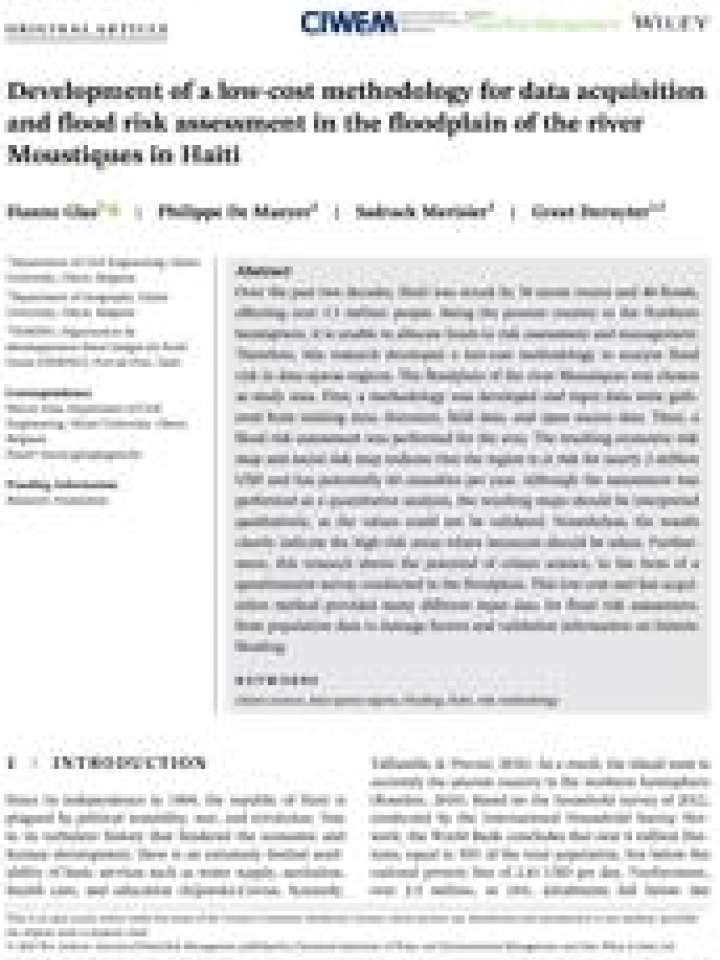Development of a low‐cost methodology for data acquisition and flood risk assessment in the floodplain of the river Moustiques in Haiti
Over the past two decades, Haiti was struck by 30 storm events and 40 floods, affecting over 3.5 million people. Being the poorest country in the Northern hemisphere, it is unable to allocate funds to risk assessment and management. Therefore, this research developed a low‐cost methodology to analyse flood risk in data‐sparse regions. The floodplain of the river Moustiques was chosen as study area. First, a methodology was developed and input data were gathered from existing data, literature, field data, and open source data. Then, a flood risk assessment was performed for the area. The resulting economic risk map and social risk map indicate that the region is at risk for nearly 2 million USD and has potentially 60 casualties per year. Although the assessment was performed as a quantitative analysis, the resulting maps should be interpreted qualitatively, as the values could not be validated. Nonetheless, the results clearly indicate the high‐risk areas where measures should be taken. Furthermore, this research shows the potential of citizen science, in the form of a questionnaire survey conducted in the floodplain. This low‐cost and fast acquisition method provided many different input data for flood risk assessment, from population data to damage factors and validation information on historic flooding.
Explore further
